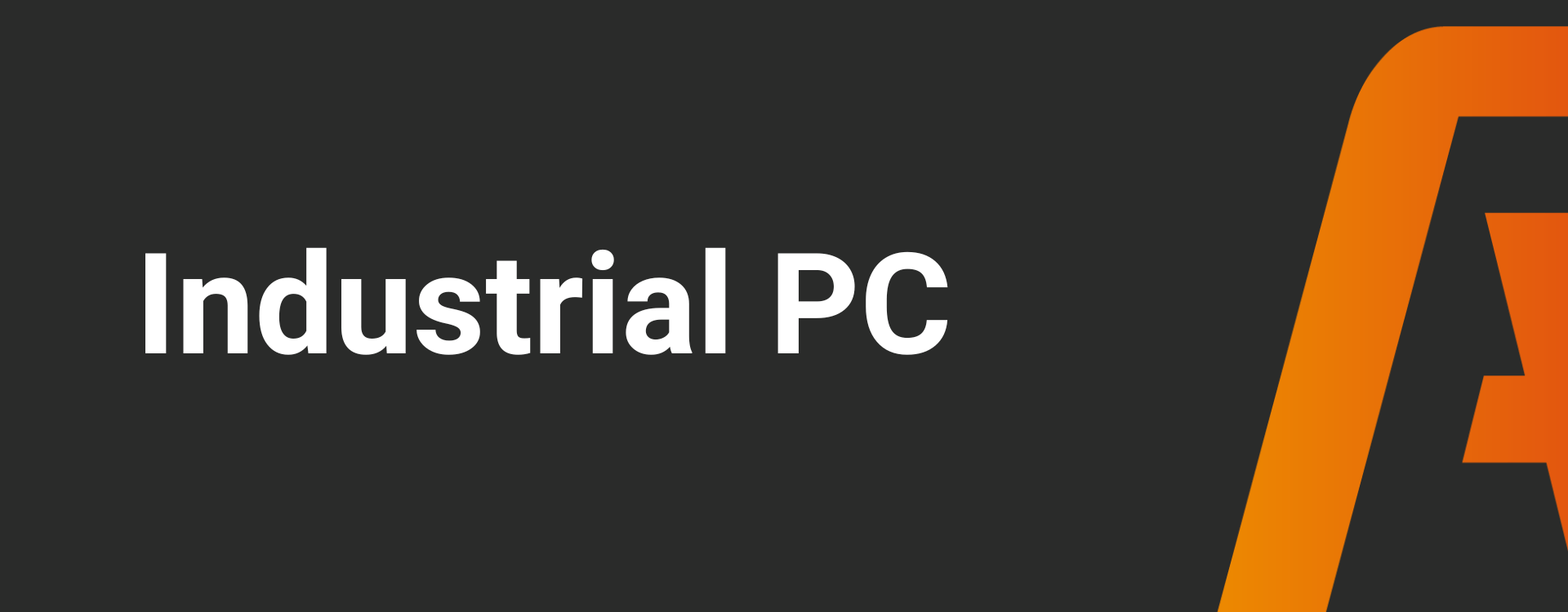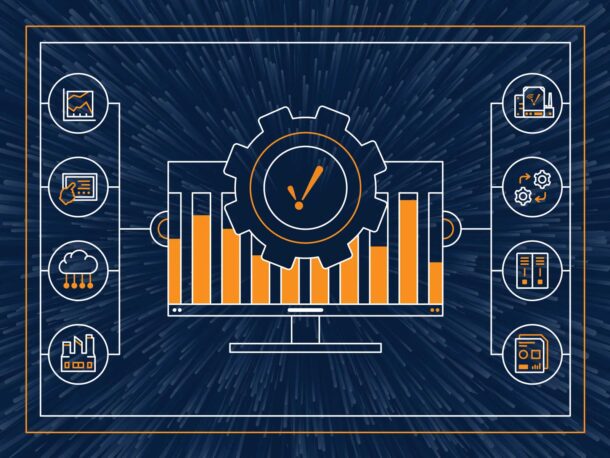In this article
» What is an Industrial PC?
» Why should you use an IPC?
» What are the benefits of an Industrial PC?
» How does an IPC work?
» What types of Industrial PCs are there?
» How do I choose the right IPC for my application?
» Applications of an Industrial PC?
» What are the differences between an IPC and a regular PC?
» Are Industrial PCs suitable for Industry 4.0?
» IPC and Ignition
» Discover Ignition

Industrial PC
In this article
» What is an Industrial PC?
» Why should you use an IPC?
» What are the benefits of an Industrial PC?
» How does an IPC work?
» What types of Industrial PCs are there?
» How do I choose the right IPC for my application?
» Applications of an Industrial PC?
» What are the differences between an IPC and a regular PC?
» Are Industrial PCs suitable for Industry 4.0?
» IPC and Ignition
» Discover Ignition
What is an Industrial PC?
An Industrial PC (IPC) is a robust, industrial-grade computer designed specifically for use in demanding environments such as factories, power plants, and transportation networks. IPCs combine the power of traditional computers with a durable design that can withstand extreme conditions such as dust, vibrations, temperature fluctuations, and humidity.
IPCs are commonly used for tasks such as process automation, machine control, data collection, and visualizing industrial processes.
Why should you use an IPC?
IPCs are used in industrial environments because they are specifically designed to operate under harsh conditions. They provide the computational power needed for real-time data processing and machine control, while also being resilient to environmental factors that traditional computers can’t endure. Furthermore, IPCs offer the reliability and long lifespan essential for 24/7 industrial operations.
What are the benefits of an Industrial PC?
- Reliability: IPCs are designed for 24/7 operation in industrial environments. They can function continuously even in tough conditions.
- Durability: They are resistant to temperature fluctuations, dust, moisture, and vibrations, making them ideal for use in factories and other demanding environments.
- Flexibility: IPCs can be easily expanded and customized for specific industrial applications, such as machine control, SCADA systems, and data processing.
- Real-time performance: IPCs offer the processing power and speed required to handle large amounts of data in real-time, which is critical for industrial automation.
- Compact design: IPCs are often smaller than traditional computers and can be seamlessly integrated into machines, control panels, or industrial systems.
How does an IPC work?
An IPC operates like a traditional computer but is designed to be rugged and resistant to environmental factors. It contains a processor, memory, storage, and an operating system, but is often equipped with additional protection against dust, moisture, and temperature fluctuations.
IPCs are often used in conjunction with industrial software such as SCADA or MES to collect, process, and visualize real-time data. They can communicate with other industrial devices through protocols like Modbus, OPC UA, or MQTT.
What types of Industrial PCs are there?
There are several types of IPCs, depending on specific needs and applications:
- Box PCs: Compact IPCs without fans, ideal for applications with limited space.
- Panel PCs: Integrated IPCs with a touchscreen, often used for HMI (Human Machine Interface) applications.
- Rackmount PCs: IPCs designed to be mounted in a server rack, typically used in control rooms or data centers.
- Embedded IPCs: Small IPCs integrated directly into machines or devices for applications like machine control or data collection.
How do I choose the right IPC for my application?
When selecting an IPC, consider the following factors:
- Processing Power: The required CPU, RAM, and storage capacity, depending on the complexity of the application.
- Environmental Resilience: Choose an IPC with an appropriate IP rating (e.g., IP65) to ensure it can withstand dust, moisture, and temperature variations.
- Connectivity: Ensure the IPC has the necessary ports and protocols (such as Ethernet, USB, Modbus, OPC UA) for communication with other devices and systems.
- Expandability: Choose an IPC that can be upgraded with additional cards or modules to support future needs.
- Size: Determine whether you need a box PC, panel PC, or rackmount PC based on available space and installation requirements.
Applications of an Industrial PC
IPCs are used in various ways in industrial environments:
- Machine Control: IPCs serve as control systems for machines and production lines, processing sensor data and controlling machines.
- SCADA Systems: IPCs are used to monitor and control production processes and machines via SCADA software.
- Predictive Maintenance: IPCs collect and process data from sensors to enable predictive maintenance and minimize downtime.
- Process Automation: IPCs are used to automate production processes and gather data from production lines and machines.
- Logistics and Transportation: IPCs can be used to automate warehouses, vehicles, and other transportation infrastructure.
What are the differences between an IPC and a regular PC?
A regular PC is designed for use in an office environment, while an IPC is specifically designed for industrial applications. The key differences are:
- Durability: IPCs are built to withstand extreme environmental factors such as dust, moisture, vibrations, and temperature fluctuations, whereas regular PCs usually aren’t.
- Reliability: IPCs are designed for 24/7 use in demanding environments, while regular PCs are intended for occasional use.
- Connectivity: IPCs support industrial protocols like Modbus, OPC UA, or MQTT, while regular PCs typically support standard network connections.
Are Industrial PCs suitable for Industry 4.0?
Yes, IPCs are an essential part of Industry 4.0. They offer the necessary processing power, reliability, and connectivity to enable digital transformation. IPCs can seamlessly integrate with modern industrial software like SCADA, MES, and ERP, supporting data collection and processing needed for IoT applications and predictive maintenance.
IPC and Ignition
Ignition is a leading platform for industrial automation that works excellently with IPCs. Ignition provides powerful tools for collecting, visualizing, and analyzing data, while IPCs ensure the reliability and performance needed in industrial environments.
With Ignition, companies can quickly and efficiently collect data from machines and sensors connected to IPCs and use this data for real-time monitoring, process optimization, and fault prevention. Combining Ignition with IPCs offers companies a robust and scalable platform for their industrial automation applications.
Discover Ignition
your way
Start building
For developers
Get started with your own Ignition applications right away.
- Download and install Ignition easily and quickly.
- Explore all features.
- Connect unlimited tags, PLCs, databases, and devices.
Discover how Ignition solves your technical challenges without limitations.
See Ignition in action
For managers
Explore Ignition without any technical knowledge in the demo environment.
- No installation required.
- See how Ignition automates and visualizes processes.
- Adjust live values and see instant results.
Experience real-time automation and discover what it can offer your business.
Want to really know what Ignition can do for you?
Let us come to you for a free demo.
- Meet with our experts and ask all your questions.
- Get personalized advice.
- See how Ignition can optimize your processes.
The perfect opportunity to collaborate with specialists and see exactly how Ignition can help you achieve your business goals.

